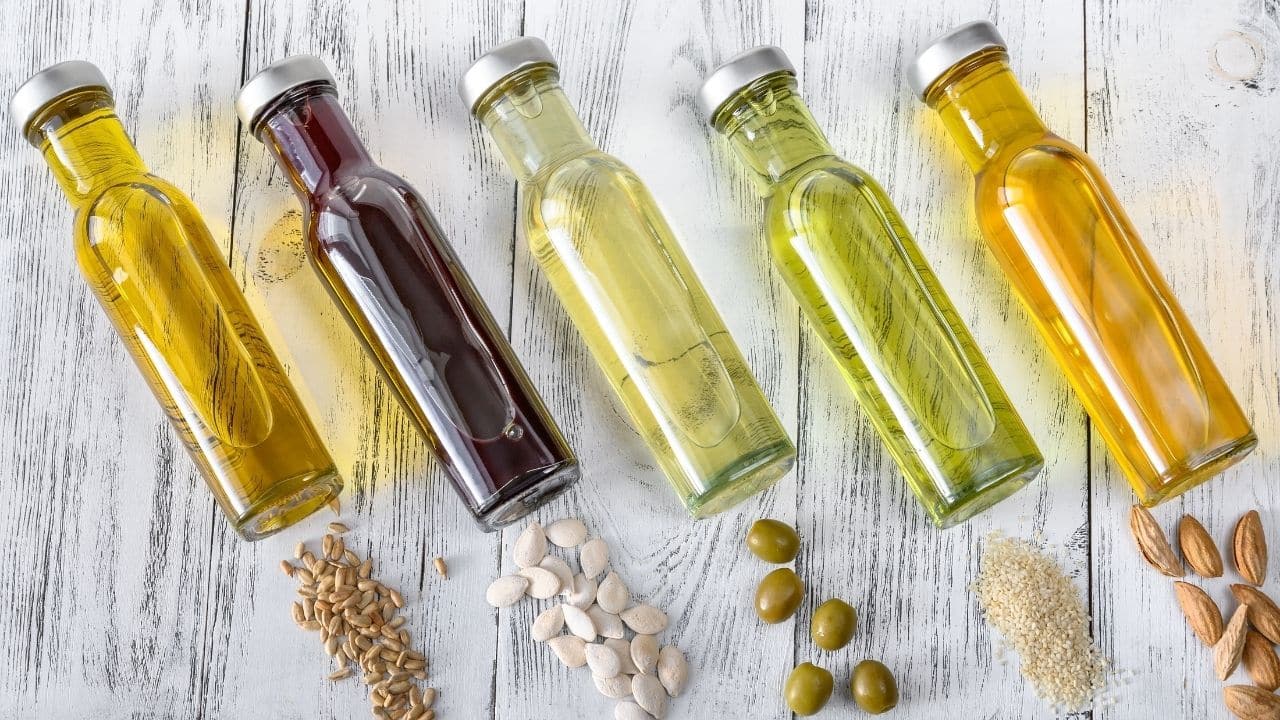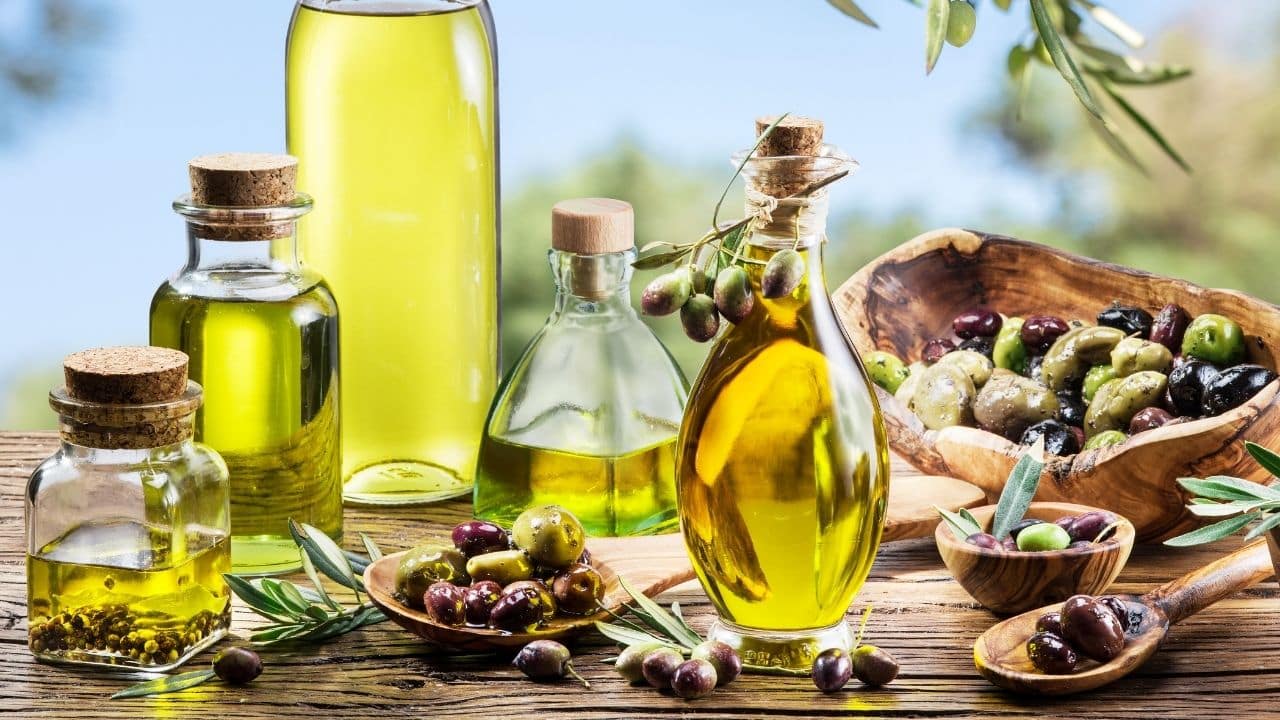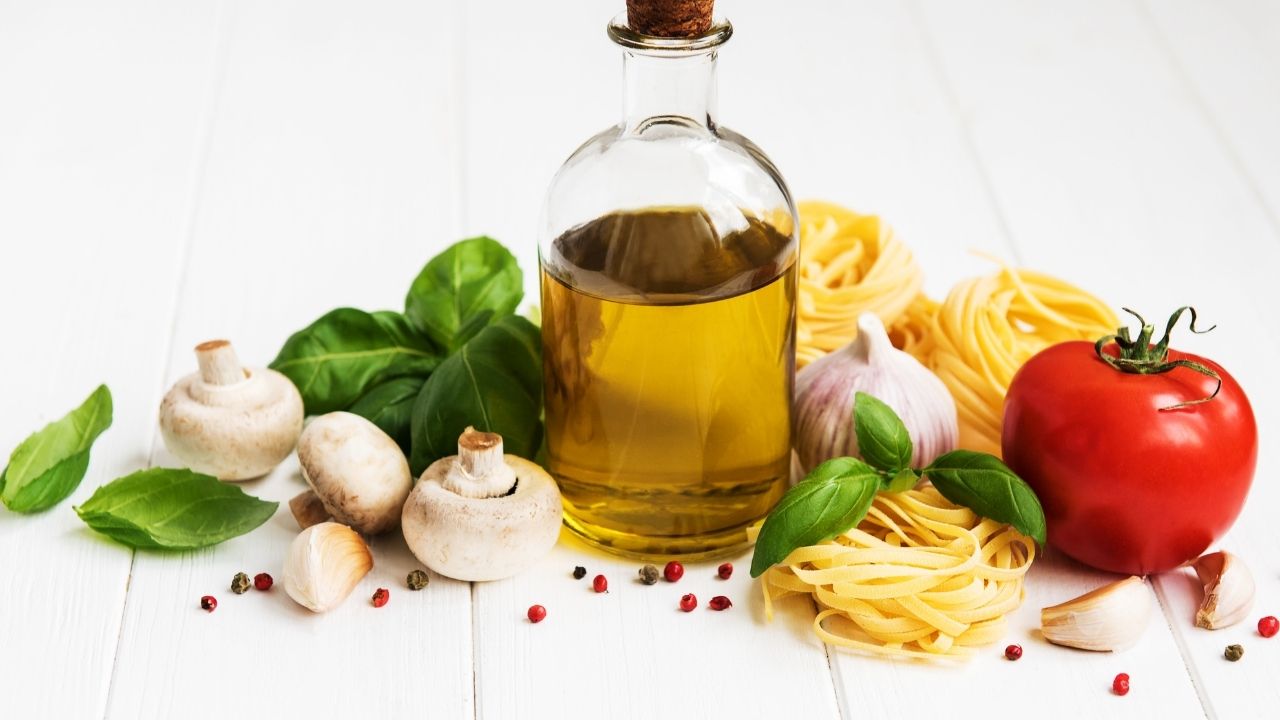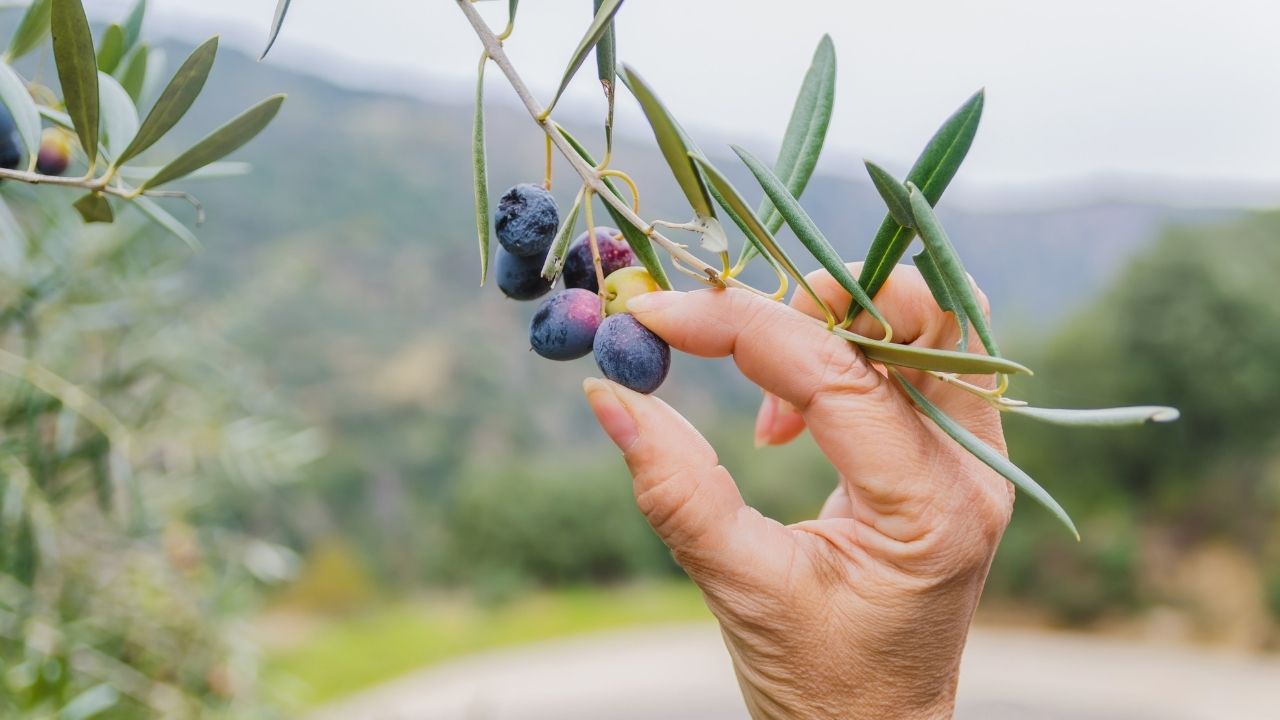As we learn more and more about the effect of meats and high fat diets on our overall health, you’d think that the conversation about which foods are considered ‘healthy’ and which ones aren’t would be getting simpler.
After all, we know that in general, whole foods are the best options to choose. We also know that processed foods with added sugars generally aren’t great options for optimal health.
We’ve learned that in general, low-fat, plant-based diets with whole foods are good for your overall health and longevity, especially if you’re living with diabetes.
And we’ve learned that there are some substantial risks to meat consumption and eating high fat diets, especially when you consider extremes like processed meats, or a high-fat diet like the keto diet or carnivore diet (as tempting as they can be).
But as the world of nutritional science learns more and more, the conversation doesn’t get simpler. In fact, each new piece of research adds new conflict about which foods are “healthy” for you and in what quantities.
The Conversation from the Mastering Diabetes Perspective
Before we wade into this conversation, a word from Mastering Diabetes. We have a system of green light, yellow light, and red light foods, which are designed to provide a simple guide for how to reverse insulin resistance, control your blood sugar, and improve your overall health.
And while our team and thousands of people who have transformed their lives with this research can attest to the success of those guidelines, there are foods that sit somewhere in the gray area.
For some of these foods, complex research points out that there may be risks associated with consuming them, but there may also be distinct health benefits. Which makes sense. The reason is simple: the way that food interacts with your biological machine is extremely complex, so as scientists learn more about various biochemical processes, our understanding of human health constantly evolves.
This context is massively important. When it comes to our guidelines, we tend to lean on the safer side: until there’s an overwhelming body of research advocating any particular food or food group, we don’t recommend eating it.
But there’s a massive conversation going on about certain foods, especially because they can be so tasty and desirable, and they do show some promise as potential contributors to an overall, healthy diet.
There are probably quite a few foods that jump into your head – organ meats, fish, and high fat plant-based foods like avocados, nuts, and coconuts. And don’t forget semi-processed plant-based foods. And collagen. And coconut oil. And MCT oil. And foods containing lectins. And the list goes on.
There’s no shame in admitting that we don’t have all of the answers just yet, which is why today we’re wading into the conflict-ridden discussion surrounding olive oil, and answering a simple question: can diabetics use olive oil?

Is Olive Oil a Healthy Food Choice? The Mastering Diabetes Position
There are two big questions that come up when deciding if a food is ‘healthy’ or not.
First, is the food itself ‘healthier’ compared to other common alternatives?
And second, are people who eat it ‘healthier’ than those who do not?
We’ll address both here.
Is it better to cook with high quality olive oil compared to butter, mayonnaise, dairy fat, or other oils?
However, is it better to use oil-free cooking methods rather than high quality olive oil? E.g. Are people who don’t consume olive oil healthier than those who do?
Here, we believe that the answer is yes, very much so. When it comes to oils, at least as they are commonly used in food and cooking, we believe that high-quality olive oil is among the best possible options. It has a greater nutritional complexity than many other processed plant oils, and doesn’t contain compounds like heme iron, nitrites, sodium, and leucine found in dairy alternatives.
We believe the answer here is yes, though we acknowledge that specific, conclusive studies on the topic have not yet been done in enough depth to provide a definite answer.
The reason we believe the answer is yes is based off of 3 factors:
First, oil is a processed food, no matter how high-quality, and most research shows that whole-foods maintain more natural nutrients, and are better suited to the human digestion process than processed foods.
Second, oil is the most calorie dense food on the planet at 4,000 kcal/pound, and has a comparatively low density of beneficial nutrients.
And third, we have observed that oil is a high fat food that contributes to temporary insulin resistance, causing significant elevations in blood glucose and significantly increased insulin requirements in the hours following its consumption. This makes it particularly risky for people living with any form of diabetes. So when people ask us about any oil ("is canola oil good for diabetics? What about palm oil?") we have a similar position that it's better to avoid them.
It’s from this position that we’ll be addressing the discussion on olive oil, while acknowledging alternative viewpoints and gaps in the research.
What Do You Teach in Your Coaching Program?
In our coaching program we proudly teach that we are not the “food police.” We support you in whatever choices are best for you, and are here to help members of our community objectively understand the consequences of their decisions.
If you choose to have oil, we will look at the latest research showing what oil is best for your long-term health. We’ll help you use an appropriate amount in alignment with your goals. We’ll help you understand how oil is either helping or preventing you from achieving your ideal body weight. We’ll help you understand how oil consumption is impacting your blood glucose (blood sugar), blood pressure, and cholesterol.
And with all that said, we’d likely encourage you to experiment with an oil-free diet so you can see if it makes a positive difference in regard to your overall health and insulin sensitivity.
But ultimately, the choice is yours, and we’ll work with you, not talk or preach at you.
Diving into the Olive Oil Discussion
If you’re familiar with the Mastering Diabetes Method, you know that all oils are listed in our red light category, meaning that we suggest you minimize or completely eliminate all oils from your diet in order to maximize your insulin sensitivity.
Click here to review our traffic light guidelines which give you insight into the exact foods that we classify as green light, yellow light, and red light.
However, let’s understand that not all oils are created equal. First, let’s address some types of oils that are generally accepted as ‘unhealthy’ oils.

The General Consensus – Oils to Avoid
There are two families of oils that are generally accepted as unhealthy, which includes:
- Oils with a high concentration of omega-6 fatty acids
- All hydrogenated oils
Oils with a high-concentration of omega-6 fatty acids include:
- Soybean oil
- Corn oil
- Cottonseed oil
- Sunflower oil
- Peanut oil
- Sesame oil
- Rice bran oil
The key problem with omega-6 fatty acids isn’t the fact that it’s unhealthy in and of itself. In fact, omega-6 is a valuable fatty acid that plays a role in promoting inflammation in response to injury. So while omega 6 fatty acids are not harmful per se, the ratio of omega-6 to omega-3 fatty acids is an important aspect of your metabolic health.
Combined with the fact that the above oils have a high calorie density and a high fat density relative to their beneficial nutrients, they're worth avoiding.
Hydrogenated oils are a second family of oils worth avoiding completely. Hydrogenation is a chemical process that was specifically designed to prolong the shelf life of liquid oils by turning them into solids at room temperature. By hydrogenating liquid oils, food manufacturers can prolong their shelf life, increasing their revenue.
This hydrogenation process turns naturally occurring fats into other forms, including trans fats and saturated fats.
And since the research is clear on the negative effects of trans fats – including increased risk of cardiovascular disease, chronic disease and cancer – as well as of saturated fats – which increase risk of cardiovascular disease – it’s better to avoid hydrogenated oils altogether.
We haven’t mentioned a third family, which are oils based on animal fats and dairy, as this is an entire other subject to explore.
We tend to recommend avoiding animal products altogether, due to the naturally higher concentrations of saturated fat, cholesterol, heme iron, nitrates, nitrites, and other inflammatory compounds, along with the fact that processed animal products are classified as Class 1 or Class 2 carcinogens. We mention more about this topic here.
The Newest Research – Wading into the Gray Area
Now, you’ll notice that olive oil and its siblings like virgin and extra virgin olive oil aren't on either of these ‘no-go’ lists, which is true. And in fact, olive oil has been shown to have some beneficial effects, which is why this topic can be so confusing.
We’ll break down some of the most recent research below.
Olive Oil and Cancer Risk

This high quality meta-analysis reports on the impact of olive oil on cancer risk. Forty eight studies were included in the analysis, which found that the highest quantity of olive oil intake was associated with a 31% lower likelihood of cancer, including breast, gastrointestinal, upper aero-digestive, and urinary tract cancers.
The key mechanism proposed here for this beneficial effect were the antioxidant properties of polyphenols, which naturally reduce oxidative stress and the risk of cancer.
After all, olives themselves are packed with polyphenols, vitamins, and other vital nutrients that have been shown to improve your overall health, and some of these key compounds remain present in olive oil.
However, what’s missing from this data analysis is the fact that there aren’t many details for the overall quality of the diet. There were quite a few Mediterranean populations included, but these benefits were displayed in non-Mediterranean populations too, showing that olive-oil potentially does have some cancer-prevention benefits on its own.
A compelling feather in the cap of olive oil.

Olive Oil and All-Cause Mortality

Perhaps even more compelling was a study of over 90,000 participants in the Nurses’ Health Study and the Health Professionals Follow-up study in the US, which investigated the impact of olive oil consumption on the risk of all-cause and cause-specific mortality.
Over the course of 28 years, participants who reported the highest olive oil consumption (>0.5 tablespoon/day or >7 g/d) had:
A 19% lower risk of all-cause mortality
A19% lower risk of cardiovascular disease mortality
A17% lower risk of cancer mortality
A 29% lower risk of neurodegenerative disease mortality
A18% lower risk of respiratory disease mortality
compared with those who never or rarely consumed olive oil.
This correlation even persisted after adjusting for other dietary factors, and data showed that as little as 1.5 g/d of olive oil was associated with a benefit in reducing mortality.
What’s important to note here is once again our key question – instead of what? In this study, olive oil as a replacement for margarine, butter, mayonnaise, and dairy fat with olive oil was associated with the lowest mortality risk.
What’s interesting is that substituting olive oil for other vegetable oils (eg, canola, corn, safflower, and soybean oil) did not result in a reduced mortality risk, suggesting that vegetable oils in general may themselves confer reduced mortality.
So one key takeaway from this study could be something we probably already knew – that plant-derived oils may be healthier than highly concentrated fat from animal sources.
And on a large scale, individuals who chose olive oil certainly did experience a reduced mortality rate, which shows that olive oil may in fact be a healthful choice and does have a place in a health-promoting diet.
However, one key question this leaves us with is – is olive oil giving you something that a plant-based, whole food diet doesn’t?

The Mediterranean Diet – Navigating A Compelling Quandary

The Mediterranean diet is one of the most popular subjects of study when it comes to exploring diets that integrate whole-food, primarily plant-based nutrition with the addition of small amounts of fish, oil, and other foods that might traditionally be avoided in low-fat, plant-based diets.
And with good reason. Compared to the vast majority of global diets, the Mediterranean diet has been associated with improved cardiovascular health, quality of life, and longevity, along with reduced chronic disease and mortality risk.
Add in the fact that the Mediterranean diet prominently features olive oil, and you have a compelling suggestion that olive oil can be a part of a healthy overall diet.
However, many researchers have begun to explore the various components of the Mediterranean diet – including olive oil – to discern if all of these featured staples are healthy choices, or if the Mediterranean diet is simply an overall healthy decision, featuring some unhealthy foods.
The research team in this article sought to understand the effect of meals rich in olive oil compared to an alternative – canola oil – and how they affected overall endothelial function in the post-meal state.
And while this study was small in scale, the results were clear – the meal enriched in olive oil inhibited endothelial function far more than the meal rich in canola oil, with all other aspects of the diet being equal.
Now, it’s worth remembering here what we mentioned above. Most foods are complex, and for some foods there can be a mixture of beneficial and negative effects. So it’s entirely possible that olive oil both has the ability to reduce cancer and mortality risk and the ability to hamper endothelial function.
However, the near-ubiquity of olive oil in the Mediterranean diet also supports another potential conclusion:
It’s entirely possible that the whole foods and plants present in the Mediterranean diet provide an overall healthful effect, one that reduces cancer risk and mortality risk, despite the presence of olive oil, rather than because of it.
We believe that as more data comes out specifically isolating the effects of olive oil, we’ll start to get a clearer picture.
The Buzz Around the Plant-Based World
Looking around at some of our contemporaries, this combination of hesitance and acceptance seems rather common.
Many low-fat plant-based advocates use olive oil, acknowledging several caveats:
That some oils are certainly better than others, and olive oil is one of the more healthful oils
That eating the whole food from which the oil was made is better than eating the oil itself
That the research around oil is confusing, often conflicting, and leaves much room for further investigation
That oils aren’t ideal for people trying to improve their insulin sensitivity or lose weight
And that no matter what, oils are best consumed in small quantities, and alongside a diet where the majority of calories come from plant-based whole foods
In general, this cautious acceptance seems to be the most common position on olive oil at present, with an overall viewpoint that it is most important to focus on the overall diet and its benefits to your overall health.

Our Key Takeaways
In conclusion, is olive oil a healthy food choice? Well, as we’ve laid out above, the answer is complicated.
Instead of What?
First, let’s address criteria one – instead of what?
Olive oil clearly has some benefits, especially when compared to hydrogenated, omega-6 dense, or animal fat oils. But is it a better choice for your health than eating no oil at all?
For that question, the jury is still out. There are certainly extensive studies showing olive oil correlated with positive health outcomes. But are these attributed to the diet as a whole?
The Mediterranean Diet – What Do We Learn?
We can look, for example, at the Mediterranean diet. The Mediterranean diet is solid proof that you can include olive oil in your diet and still reduce your risk of mortality, while improving your overall health.
But the Mediterranean diet is rich in whole foods and draws the majority of its nutrition from plant-based sources. So are you just quelling the negative effects of olive oil by making mostly healthy choices and eating a small amount of oil? Until we have more conclusive data that compares the two, it’s hard to say.
And For Insulin Resistance?
And finally, within the context of people who are working to improve insulin sensitivity, is olive oil a healthy choice?
Well, when you’re working to improve your insulin sensitivity, we believe it’s better to reduce your fat intake to 15% of your caloric intake or less, regardless of whether some high-fat foods might also have some protective benefits.
This is especially true when you’re in the critical early stages of improving your overall health, and fighting hard for better blood sugar control (as well as all of the symptoms that come along with a high or unpredictable blood glucose).
Now, after reversing insulin resistance, could olive oil be a special occasion food? Or beneficial in small amounts when managed correctly alongside monitoring your health? Potentially. Currently there’s not enough data to say, but you can rest assured we’ll keep an eye on this information moving forward! After all, when it comes down to it, we believe the research indicates that the best olives for diabetics are just... regular olives!
So Where Does Olive Oil Fall – Yellow Light or Red Light?
With context to the Mastering Diabetes guidelines, we do know that olive oil is certainly not a green light food. It’s incredibly calorie and fat dense, which is not what you want when you’re looking to reverse insulin resistance.
Could it make the case for being a yellow light food? A food capable of being in your diet as a healthy addition in small, managed quantities and adding potential health benefits? We’re going to say no here too.
The Mastering Diabetes guidelines are excellent for your overall health, but they’re specifically tailored to help reverse insulin resistance, and for that goal we recommend against any oil.
So overall, we’re going to keep it classified as a red-light food for now, acknowledging that due to its high fat content it’s not a productive choice for reversing insulin resistance if you’re living with any form of diabetes.
But What If I’ve Reversed Insulin Resistance? Or Never Had It?
For the general public, or people who have already reversed insulin resistance, will olive oil suddenly send you careening back towards type 2 diabetes? Certainly not. There is more than enough evidence to show that you definitely can find a way to integrate olive oil into a healthy lifestyle in small quantities.
Also, we know people are human. Even for people working to reverse insulin resistance, sometimes you might snack on a red light food on a special occasion, and one moment like that won’t undo all of your progress. And in fact, a little olive oil on a salad is going to be a much better “cheat” item than a giant pile of processed potato chips.
But we recommend that you always approach moments like these with the knowledge and awareness that they do have the potential to harm your overall health. Ultimately, the goal should be to focus on plant-based, whole-food nutrition for the majority of your calories.
Sit In the Driver’s Seat of Your Diabetes Health Permanently
More than anything else, we here at Mastering Diabetes understand that everyone’s diet is different, and that what works for one person may not work for another.
Our guidelines are built off of our understanding of the latest research, and tailored to help you reverse insulin resistance in a sustainable manner. But for many people, there’s a whole lifetime that awaits afterward, filled with potential exceptions, adaptations, and pitfalls.
That’s why our coaches are here every step along the way, even into developing your new normal. Because studies and science provide great insight and guidance into the way forward, but when it comes to the specifics each person’s story is different.
If you’re interested in reversing insulin resistance, and learning how a low-fat, plant-based, whole-food diet can transform your life, there are a number of different coaching options.
We have personalized group coaching and 1-on-1 private coaching if you’re looking to take control of your diabetes health today with the guidance of your own personal diabetes expert.
And along the way, you might just improve your overall health in a major way!

